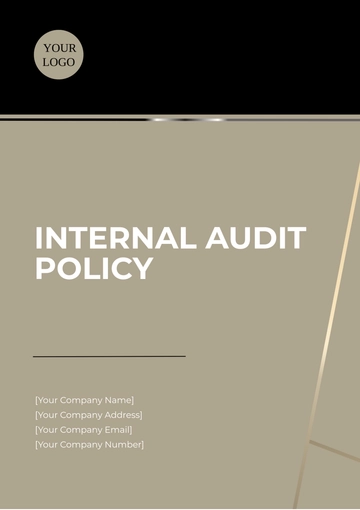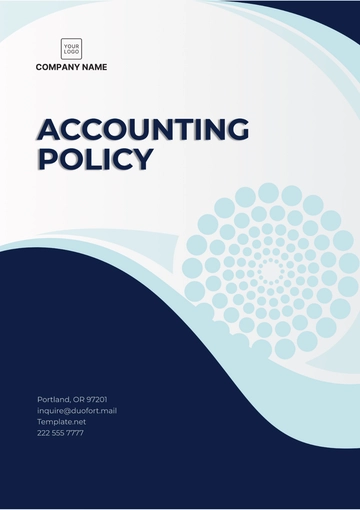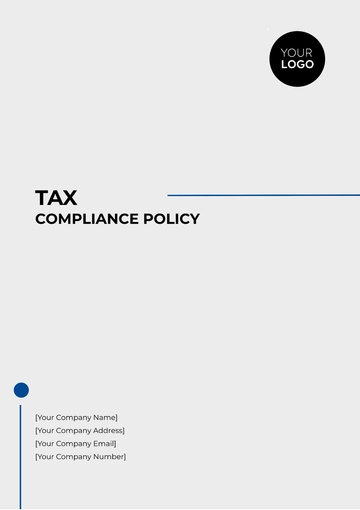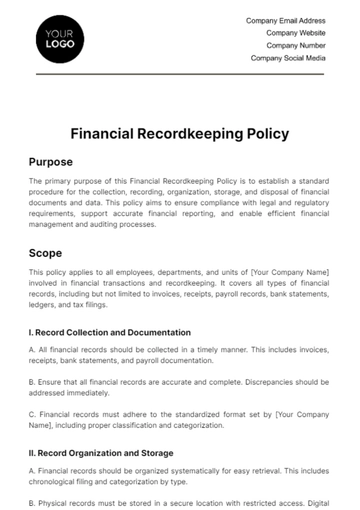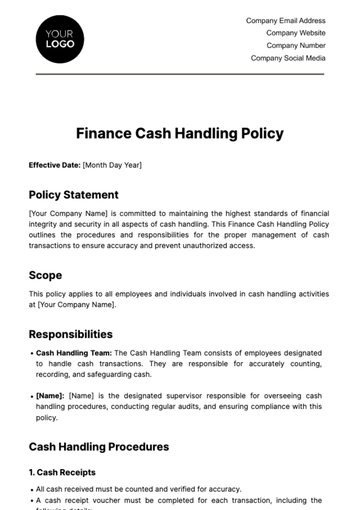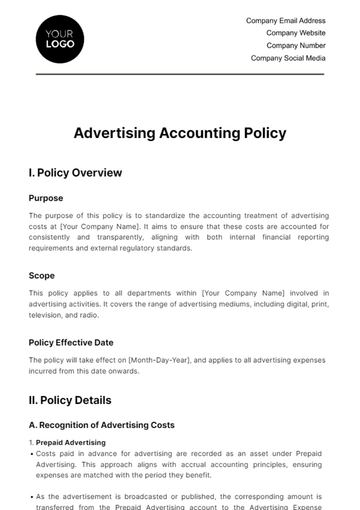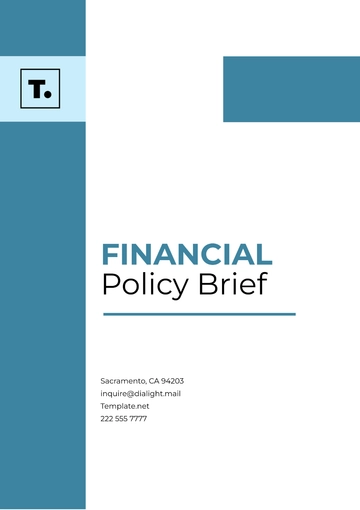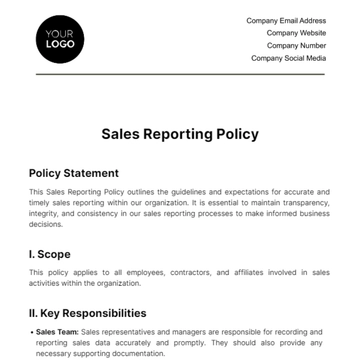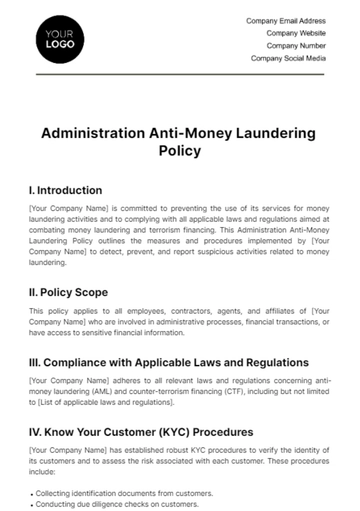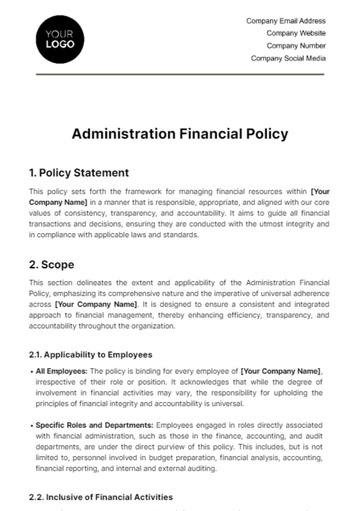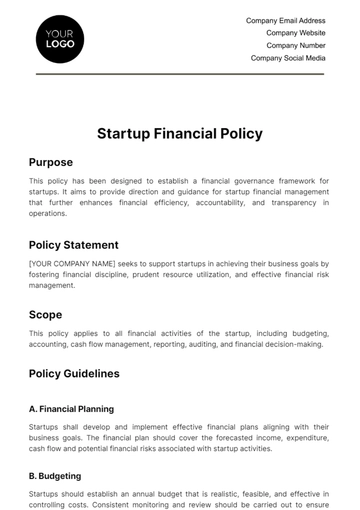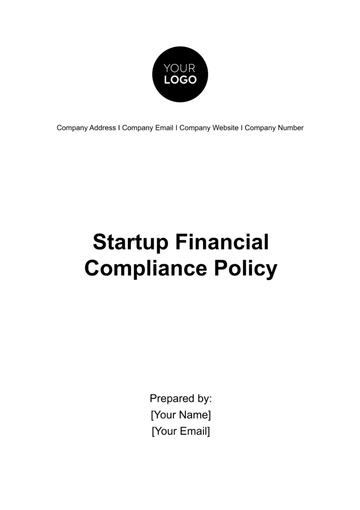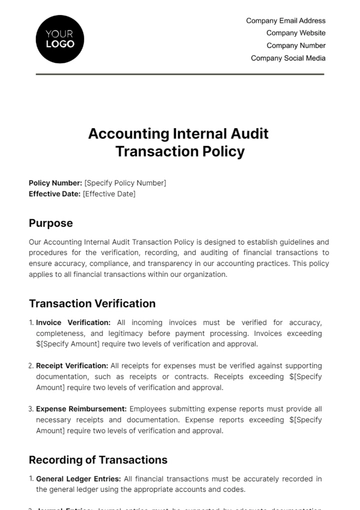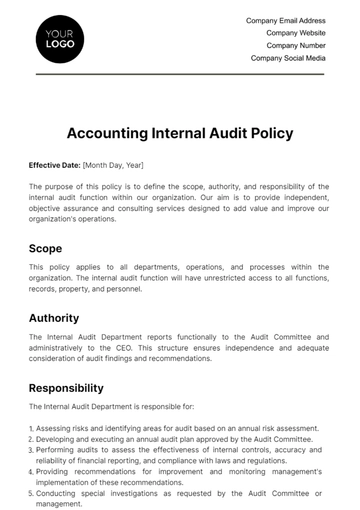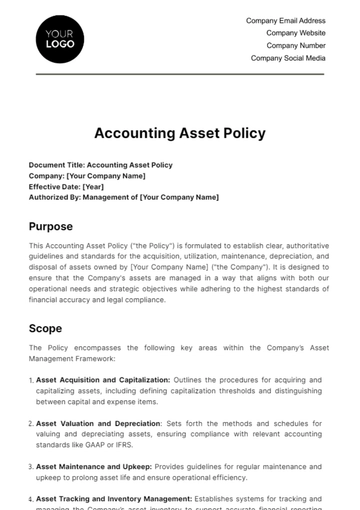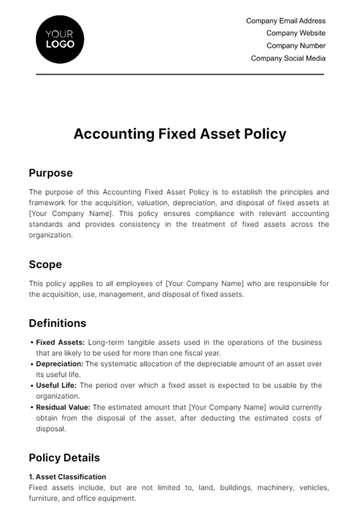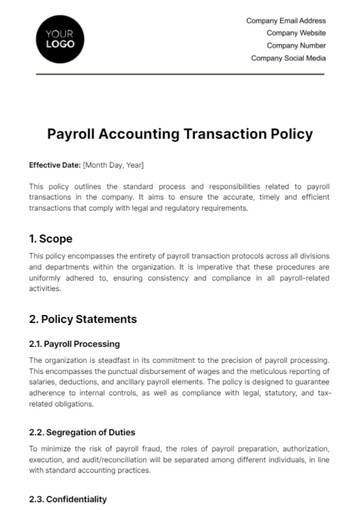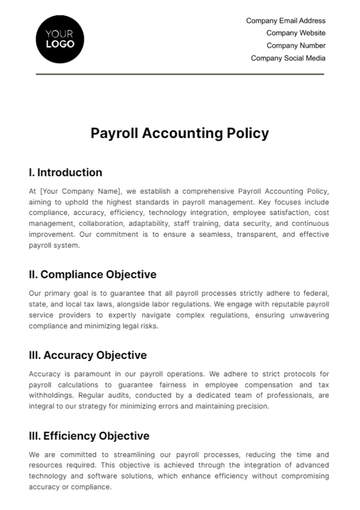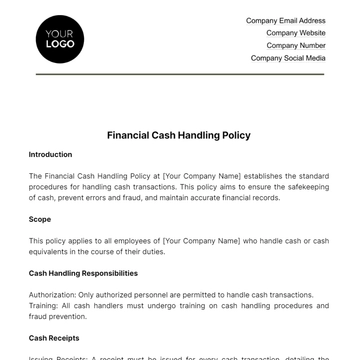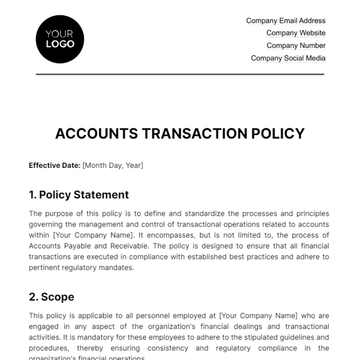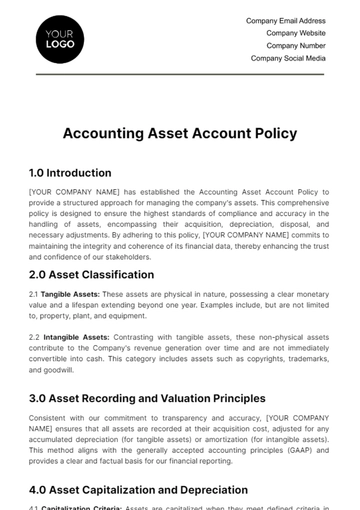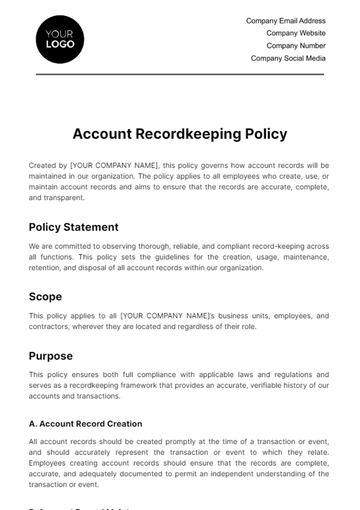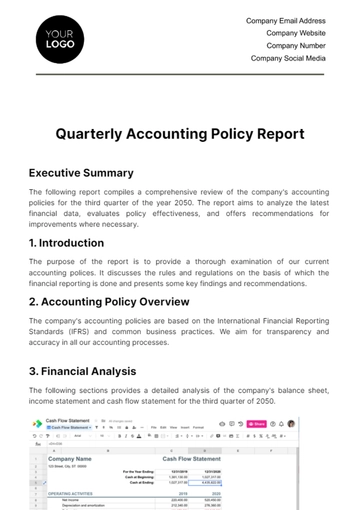Free Accounting Internal Audit Policy
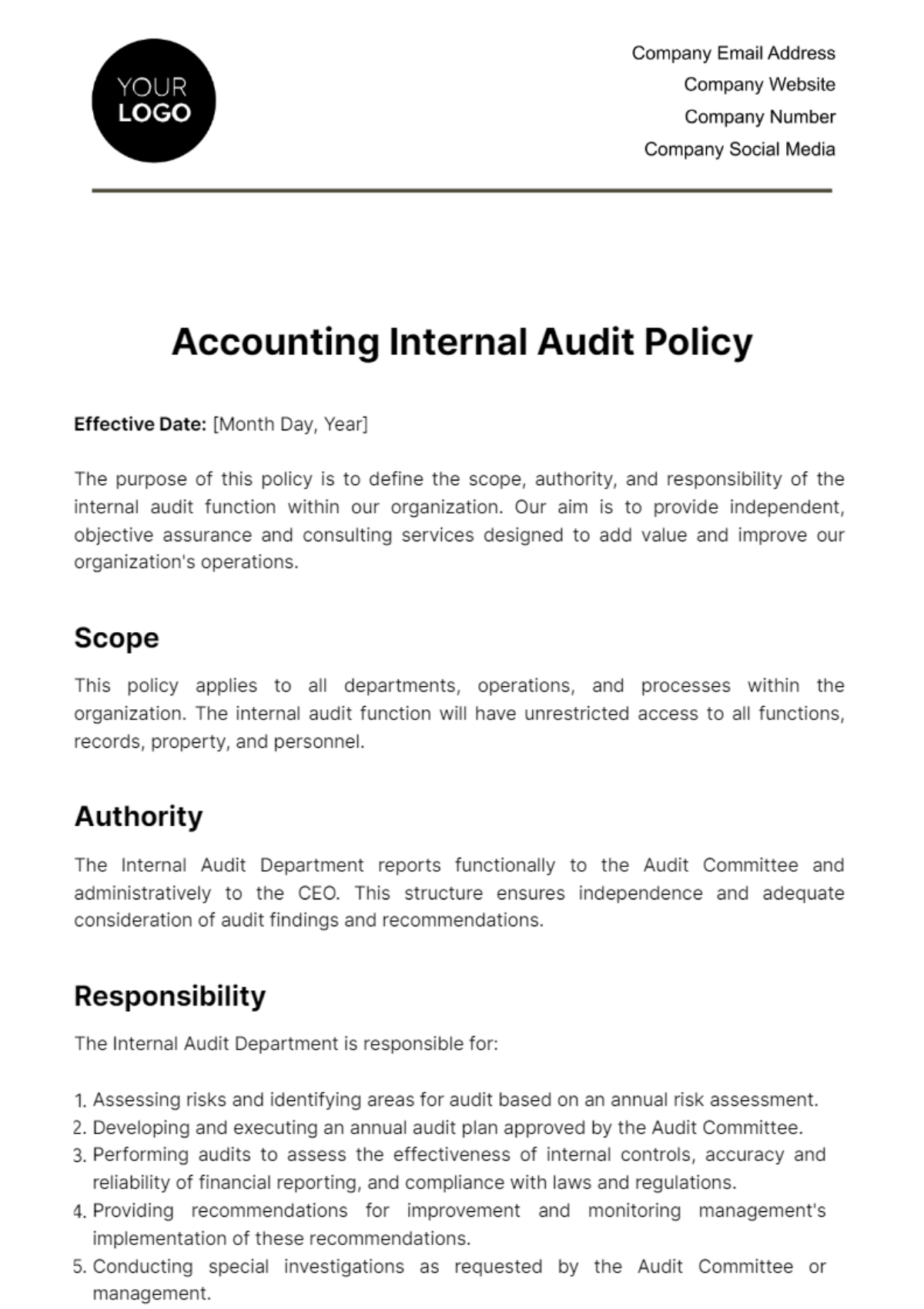
Effective Date: [Month Day, Year]
The purpose of this policy is to define the scope, authority, and responsibility of the internal audit function within our organization. Our aim is to provide independent, objective assurance and consulting services designed to add value and improve our organization's operations.
Scope
This policy applies to all departments, operations, and processes within the organization. The internal audit function will have unrestricted access to all functions, records, property, and personnel.
Authority
The Internal Audit Department reports functionally to the Audit Committee and administratively to the CEO. This structure ensures independence and adequate consideration of audit findings and recommendations.
Responsibility
The Internal Audit Department is responsible for:
Assessing risks and identifying areas for audit based on an annual risk assessment.
Developing and executing an annual audit plan approved by the Audit Committee.
Performing audits to assess the effectiveness of internal controls, accuracy and reliability of financial reporting, and compliance with laws and regulations.
Providing recommendations for improvement and monitoring management's implementation of these recommendations.
Conducting special investigations as requested by the Audit Committee or management.
Audit Planning and Execution
The annual audit plan will be developed based on a risk assessment that considers historical data, changes in operations, and external factors. For example, if in the previous year we identified a significant risk in our inventory management system with variances amounting to $100,000, a follow-up audit might be prioritized to ensure corrective actions have been effectively implemented.
Each audit will involve planning, fieldwork, reporting, and follow-up stages. Detailed work programs will be prepared for each audit, outlining the objectives, scope, timing, and resources required.
Reporting
Upon completion of an audit, a report will be issued to the relevant department head and senior management. The report will include an executive summary, detailed findings, recommendations, and management's response. For instance, if an audit of our accounts payable process uncovers delays in invoice processing that could potentially cost us $50,000 annually in missed discounts, the report will detail these findings and suggest improvements.
Confidentiality and Professional Conduct
All information obtained during the audit process will be treated as confidential. The Internal Audit Department will conduct its activities with the highest level of integrity, objectivity, and professionalism.
Review and Approval
This policy will be reviewed annually and updated as necessary to reflect changes in our operations or regulatory requirements. All revisions must be approved by the Audit Committee.
Acknowledgment
All employees are required to acknowledge their understanding and compliance with this policy annually.
Conclusion
Our Accounting Internal Audit Policy is designed to support the achievement of our organization's objectives by bringing a systematic, disciplined approach to evaluate and improve the effectiveness of risk management, control, and governance processes. Through this policy, we commit to maintaining the highest standards of ethical, financial, and operational practices.
By upholding these principles and procedures, we ensure the ongoing reliability and integrity of our financial and operational information, promote compliance with laws and regulations, and safeguard our assets and stakeholders' interests.
- 100% Customizable, free editor
- Access 1 Million+ Templates, photo’s & graphics
- Download or share as a template
- Click and replace photos, graphics, text, backgrounds
- Resize, crop, AI write & more
- Access advanced editor
Explore the Accounting Internal Audit Policy Template from Template.net, designed for efficiency and compliance. This editable and customizable template sets the standard for internal audit practices. Easily editable in our AI Editor tool, it allows you to adapt to your organization's specific needs, ensuring a comprehensive policy framework. Strengthen your audit procedures now.
You may also like
- HR Policy
- Restaurant Policy
- Company Policy
- Accounting Policies and Procedures
- Website Policy
- Privacy Policy
- Safety Policy
- School Policy
- IT and Software Policy
- Law Firm Policy
- Construction Policy
- Interior Design Policy
- Travel Agency Policy
- Education Academic Policy
- Security Policy
- Real Estate Policy
- Expense Policy
- Software Policy

